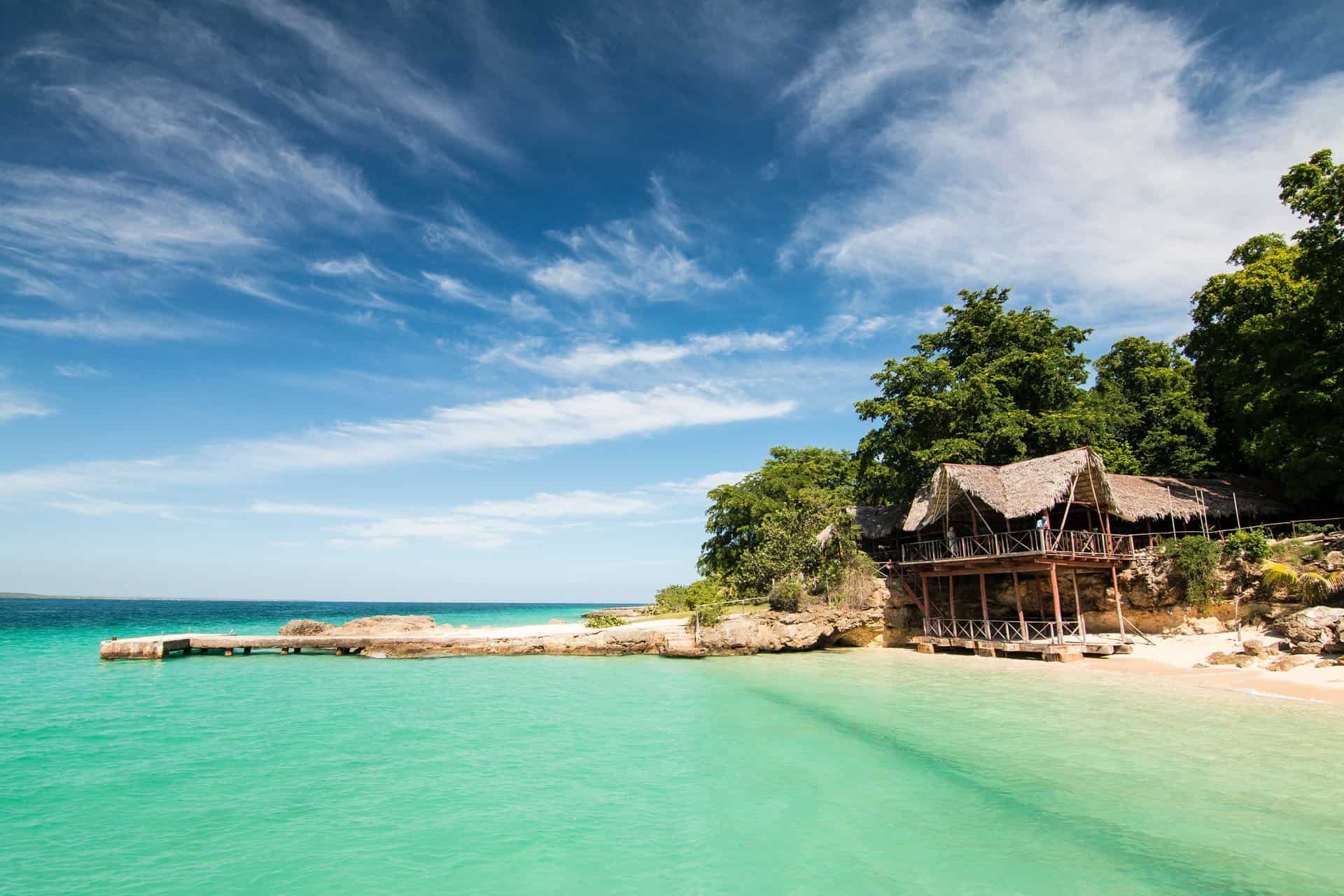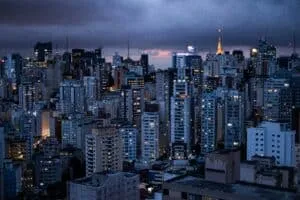
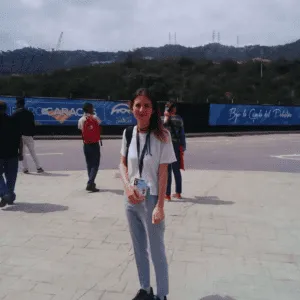
British journalist Lucinda Elliott has worked as a foreign correspondent across Latin America, reporting from the frontline in Venezuela during 2017.
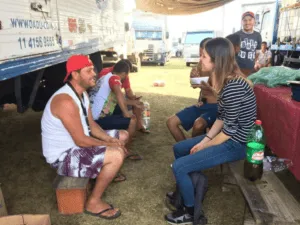
Your work as a foreign correspondent has taken you to some fairly adventurous destinations, any hair-raising moments?
One hair-raiser had to be in French Guiana when I took part in their annual carnival masked ball. Women come dressed as the queen of carnival, the Touloulou, & are entirely covered from head to toe in colonial-style costumes so potential suitors don’t know who they are dancing with. I remember taking off my silk, arm-length gloves to send a text message (if you’ve ever attempted to do this with gloves, it’s impossible) & everyone immediately stared as if I’d caused huge offence. Luckily, a mask covered my face, so the subsequent day when I had to conduct interviews they didn’t know it was me who’d insulted the crowd.
Tell us about your life in São Paulo, what made you make the move to this Brazilian metropolis?
The presidential elections were coming up & I had the opportunity to travel from Caracas to interview two-times former president Lula da Silva. Back then it still looked like he was a potential candidate before he was imprisoned & barred from running. When our meeting was over & the piece filed, I decided to stick around. That was two years ago now. The news hasn’t stopped.
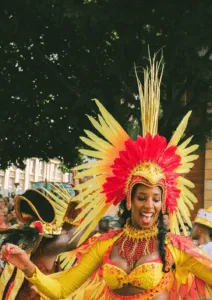
Where do you like to eat and drink in São Paulo?
I’ve been lucky to have had the chance to report on several neighbourhoods in São Paulo as part of Monocle magazine’s retail & dining pages. Santa Cecíia is buzzing at the moment with bars, restaurants & unfussy cafes. Caracol – where the owners are a laid-back team from Rio de Janeiro – has got the dining-drinking combination just right. A sweeping bar, decent drinks, DJ sets & a street food-inspired restaurant out back to enjoy the warm southern hemisphere evenings.
If you’ve just arrived, go to a boteco, Brazil’s version of a pub. There’s one on every street corner. Order a beer to be shared in small glass cups & people watch.
Where do you feel happiest?
When I meet someone who reveals a top story idea, unintentionally. Then I keep it secretly to myself while asking more questions. It’s like a light bulb moment that is hard to replicate. There have been times when I’ve frantically scribbled notes on toilet paper in the ladies loo.
Sitting around a table in good company with good wine should never be underestimated. It happens a fair bit I’m happy to say.
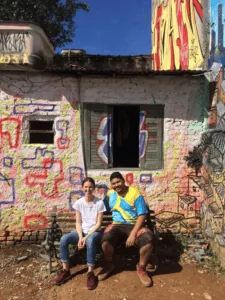
What do you miss most from the UK & what luxuries do you smuggle back to Latin America?
Draft cider. Instant hot chocolate. M&S knickers. Squeeze from my younger sister.
Dulce de leche (DDL as we call it in my family. Preferably from a Uruguayan supermarket – I was thrilled when I discovered they sold it in Venezuela). Banana passa (mini dried bananas from Brazil). Caldo de feijão (like a stock cube but for Brazilian bean stew but you can buy it in London now so…)
Which place will you always return to?
Montevideo. I’m half Uruguayan so I’ll be going to endlessly renew documents in person for a lifetime.
Where is next on your travel list?
In South America, Suriname. I was kicking myself for not making the trip over this year from French Guiana. There are sizeable Javanese, Chinese & Vietnamese communities in the former Dutch colony & I’m fascinated by the ties our region has to the Far East.
I find it too tempting to try “holiday-ing” in South America. There’s always an article to write or an interview to nail. This month I am going to New York to gallery hop & buy some decent tech equipment & affordable well-fitting underwear! High import taxes are a real issue south of the equator.
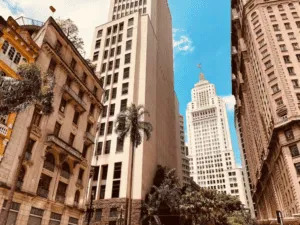
What book would you recommend to a first-time traveller to Brazil?
If they can read Portuguese, a novel by Machado de Assis. Dom Casmurro is one of the first books I read right the way through in the language & is all about a jealous husband – perhaps handy when trying to assess the dating scene on a trip to Brazil. Almost every Brazilian would’ve read it in school.
LatAm guru, Michael Reid, wrote a very good book around the time of the 2014 World Cup titled ‘Brazil: the Troubled Rise of a Global Power’. It really fills the gap with a proper English-language history of the country.
What do you listen to when on the road?
Mainly long voice messages from relatives who I haven’t had time to call for a decent chat between reporting. I so enjoy hearing a familiar voice, especially when a little anxious about arriving at a new destination.
Monocle24 radio for foreign affairs updates.
My friend Emma Gannon’s podcast, Ctrl Alt Delete. She’s become a bit of a celeb but we started out in journalism together. She gives great interviews & makes me laugh. I’d recommend her weekly business column in The Times.
What do you never travel without?
A decent pen that feels heavy to hold. I once attempted to use a hotel biro freebie for three days of interviews. Never again. Multi-plug adapter is an obvious one but essential. Suncream, any brand will do.
Follow Lucinda Elliott’s Instagram
Related Stories
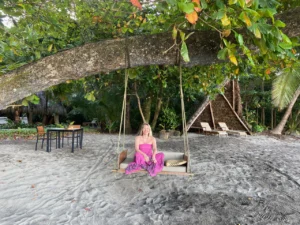
Juliet Kinsman on Sustainable Travel
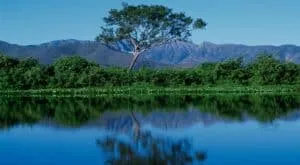
Brazil’s Wild Wetland | The Pantanal
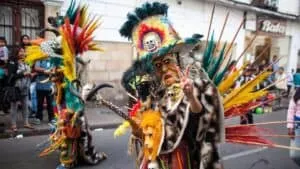
August in South America | Plan South America
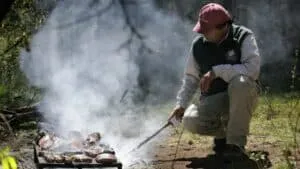
Food for thought in South America | Plan South America
@plansouthamerica
